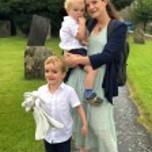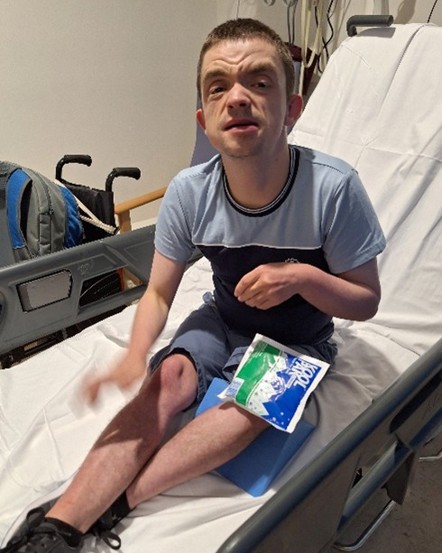He’s the Expert

Lizzie Deeble
I’m Lizzie, mummy to two beautiful boys. My eldest son, Sebastian, was diagnosed with Duchenne Muscular Dystrophy in October 2016 at the age of 2.5. H...
As the realisation dawned about the seriousness of the pandemic situation, which arguably I had been resisting accepting for a while, I felt panic engulf me. Having been relatively laid back about it all and determined to continue as normal, it quickly became clear that due to Sebastian’s Duchenne diagnosis plus the long-term steroid mediation he is on, he is considered “high risk’. And that was it - no more school for him or his brother, his dad working from home, no leaving the house for at least 12 weeks.
While I panicked for them and the loss of their “normal”, of their school lives, learning, seeing friends and social development, if I am very honest a lot of the panic was for me.
Panic came from a loss of control, of the routine that keeps me coping and a fear of a total lack of ability to cope with it all.
It is losing the routine which has been particularly difficult for me. Having been a stay at home mum since Sebastian was born nearly 6 years ago, I have carefully developed my own “timetable” for my week which, while seeming to be pretty laid back, I am pretty attached to. I hadn’t realised until now how crucial this has been to my coping mechanisms after Sebastian’s diagnosis. Control in a world over which I have so little.
Never has that been truer than right now. The irony of needing my coping strategies to deal with a situation that in itself means that I am unable to use my coping strategies.
Sebastian, with an ASD diagnosis alongside his Duchenne, needs routine. He thrives on it. I had no idea how he was going to begin to compute the concept of not being at school, or not being able to leave the house to do his favourite things, of his dad working from home, of not having contact with his 1-1 TA and all of the other amazing people who offer him support and help him to live as well as he can.
I have watched him over the last few weeks. He rarely identifies or expresses much emotion and it is difficult to know how much he understands about what is going on. But I have observed in total awe. Within the basic structure I try to give our days, he plays familiar and repetitive games. His imaginative play going into patterns some of which he had previously left behind. His bunny comfort blanket is never far away and used in play far more than it has been recently.
Almost every afternoon we make a tent in our living room. It has to be made in the same way every time. We play the same scenarios. And then often we go inside the tent, with his duvet and his cuddly bunny and snuggle up and watch telly. The same telly. Sometimes we don’t even go inside. But it’s there.
I watch Sebastian soothe himself. Not with talking about how he feels, not with tears, not with cuddles and a conventional requests for reassurance as his brother does, but with the comfort of repetition, of the familiar, of the construction of some control in the absence of any. Of making his immediate world safe and secure.
For him, I think the world is often overwhelming, physically challenging, frightening and hard to understand.
That in essence is how so many of us feel right now. Sebastian has already developed coping mechanisms for these feelings in ways that the rest of us never have.
His ability to find order in the chaos, to find the safe places and retreat into them when he needs to is a skill not to be underestimated. We all need it, perhaps more than we realised. He is the expert. He is, as always, teaching me.
And when this is all over, the memories of snuggling in the living room under a bedsheet strung up between two chairs will be the ones I cherish. Because it made me feel safe when I was scared.


